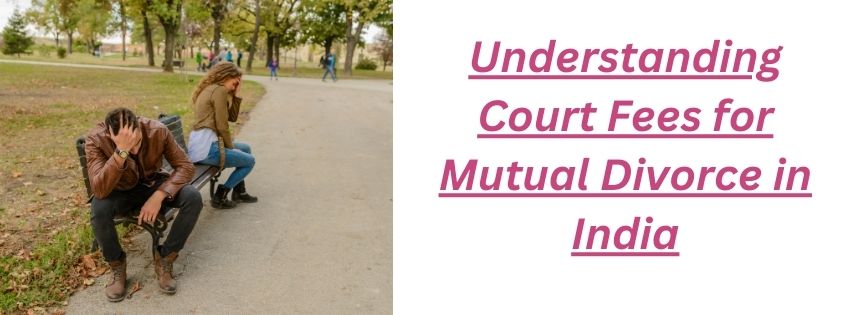
Certainly! In India, court fees for filing a mutual divorce petition vary based on the jurisdiction and the value of assets involved. However, the court fees are generally nominal. Below is a breakdown of the court fees for mutual divorce in India, along with a sample application:
Understanding Court Fees for Mutual Divorce in India
1. Court Fees for Mutual Divorce:
In most states in India, the court fees for filing a mutual divorce petition are relatively low. Typically, the court fees are calculated based on the value of the assets involved or as per the rules prescribed by the respective State Government. For instance:
- In Delhi, the court fees for mutual divorce are governed by the Court Fees Act, 1870, and are usually around Rs. 2000 to Rs. 5000.
- In Maharashtra, the court fees for mutual divorce are determined based on the value of the assets and properties owned by the spouses. It can range from Rs. 1000 to Rs. 10,000.
- In Karnataka, the court fees for mutual divorce are approximately Rs. 2000 to Rs. 5000.
It’s advisable to consult with a local lawyer or check with the concerned Family Court for the exact court fees applicable in your jurisdiction.
2. Sample Application for Mutual Divorce:
Below is a sample application for mutual divorce in India:
IN THE COURT OF THE PRINCIPAL JUDGE, FAMILY COURT AT [City Name]
MATRIMONIAL CASE NO: ___________ OF 20__
IN THE MATTER OF:
- [Name of Husband],
S/o [Father’s Name],
Aged about [Age] years,
Residing at [Complete Address],
…Petitioner No. 1. - [Name of Wife],
D/o [Father’s Name],
Aged about [Age] years,
Residing at [Complete Address],
…Petitioner No. 2.
PETITION FOR MUTUAL CONSENT DIVORCE UNDER SECTION 13B OF THE HINDU MARRIAGE ACT, 1955
MOST RESPECTFULLY SHOWETH:
[Insert the content of the petition as per the previous example.]
PRAYER:
The Petitioners pray that:
- The marriage between the Petitioners be dissolved by a decree of divorce by mutual consent under Section 13B of the Hindu Marriage Act, 1955.
- Pass such further orders as the Court may deem fit and proper in the facts and circumstances of the case.
VERIFICATION:
[Insert the verification as per the previous example.]
List of Documents Attached:
[Insert the list of documents as per the previous example.]

Leave a Reply